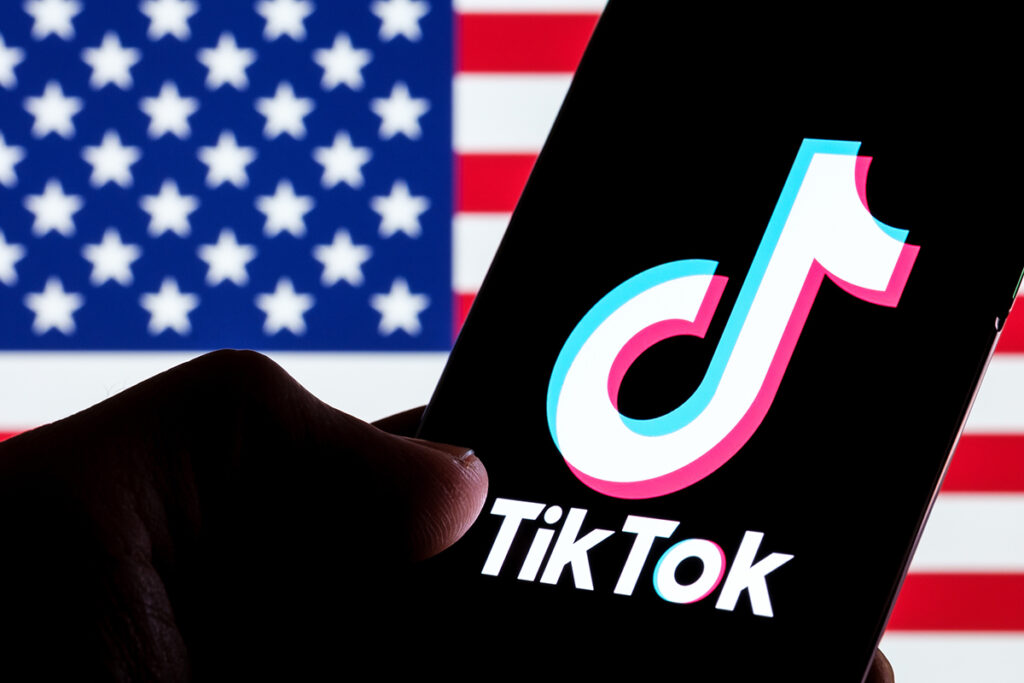TikTok briefly went dark in the United States for 14 hours, leaving millions of users without access to the platform. The shutdown came as a result of uncertainty surrounding the enforcement of a U.S. law requiring ByteDance, TikTok’s China-based parent company, to sell its U.S. operations. The law, passed with bipartisan support under President Joe Biden, aimed to address national security concerns tied to TikTok’s ownership and data practices. Technology partners such as Apple, Google, and Oracle faced potential penalties if they continued supporting the app beyond the enforcement deadline, prompting fears of immediate repercussions.
However, the shutdown was short-lived. Shortly after the app went offline, Trump pledged to issue an executive order delaying the enforcement of the ban, reassuring technology providers that they would not face penalties for keeping TikTok available. This move allowed TikTok to restore access to its 170 million U.S. users, many of whom had already started expressing concerns over losing the platform. Although the immediate crisis has passed, the app’s long-term future remains uncertain, facing ongoing political and legal challenges.
Trump’s Influence and the Future of TikTok
Trump’s role in TikTok’s return has placed him at the center of the debate over the platform’s future. Although the former president had previously sought to ban TikTok during his first term, his recent actions have positioned him as a potential ally for the app’s continued existence in the U.S. By pledging to delay the ban for 90 days, Trump has given ByteDance a temporary reprieve, providing time to negotiate a sale or alternative solution. His proposed joint venture model, where an American company would own half of TikTok while ByteDance retains the other half, reflects an attempt to balance national security concerns with the app’s popularity among young voters.
Despite this proposed compromise, it remains unclear whether Congress will accept such a solution. Many lawmakers, particularly Republicans, insist that ByteDance must fully divest its U.S. assets to ensure the platform is no longer under foreign control. Legal experts also point out that the law only allows for an extension if a sale is in progress, and ByteDance has yet to indicate a willingness to sell. Without a clear resolution, TikTok’s presence in the U.S. could once again be at risk when the extension period expires.
The Political Strategy Behind the Shutdown
TikTok’s sudden shutdown raised questions about whether it was a deliberate strategy to pressure Trump into action. While the app was not required to go offline, uncertainty surrounding enforcement of the law led the company to preemptively suspend operations. By temporarily shutting down, TikTok created a sense of urgency, forcing the incoming administration to address the issue quickly. The move also sparked significant public outcry, with influencers, content creators, and businesses voicing frustration over the app’s potential disappearance.
For Trump, the opportunity to restore TikTok provided a political advantage. The move positioned him as the key figure in resolving the crisis, potentially boosting his support among younger voters who rely on the platform. However, some users questioned the timing of events, suggesting that TikTok’s shutdown was less about protecting its technology partners and more about shaping a narrative that painted Trump as the app’s savior. This perception has fueled skepticism about whether the app’s temporary removal was a necessary step or a calculated maneuver in the broader political landscape.
Congressional Resistance and Legal Hurdles
Although Trump’s executive order may postpone TikTok’s ban, it does not provide a lasting resolution. Republican lawmakers have already expressed opposition to any extension that does not require a complete sale of TikTok’s U.S. assets. Some have argued that ByteDance’s continued ownership presents an ongoing national security threat, making any partial divestiture insufficient. Legal challenges could also complicate the situation, as the law mandates a complete separation between TikTok and its Chinese parent company.
Additionally, enforcing the law remains a logistical challenge. While Trump’s intervention may provide temporary relief, technology companies supporting TikTok still face potential legal risks. Some lawmakers have warned that hosting or distributing TikTok could expose these companies to lawsuits and financial penalties, even with a delayed enforcement timeline. As a result, the uncertainty surrounding TikTok’s long-term future may continue to impact its partnerships and overall stability in the U.S. market.
Potential Buyers and ByteDance’s Dilemma
With the legal deadline looming, ByteDance may be forced to reconsider its stance on selling TikTok’s U.S. operations. Several buyers have already expressed interest, including a group led by billionaire Frank McCourt and entrepreneur Kevin O’Leary. However, one of the biggest challenges remains TikTok’s algorithm, which is considered the core of its success. ByteDance and Chinese officials have been reluctant to sell TikTok’s U.S. assets along with its proprietary recommendation algorithm, making it difficult for buyers to replicate the platform’s engagement levels.
Rumors have also surfaced about Elon Musk being a potential buyer, though neither Musk nor ByteDance has confirmed these reports. The involvement of a high-profile figure like Musk could add another layer of complexity to the negotiations, especially given his ties to Trump and ongoing business ventures. Regardless of who the final buyer may be, the key question remains whether ByteDance will agree to a deal that satisfies U.S. lawmakers while preserving the core elements that make TikTok a global phenomenon. Until then, the app’s long-term future in the U.S. remains uncertain.


